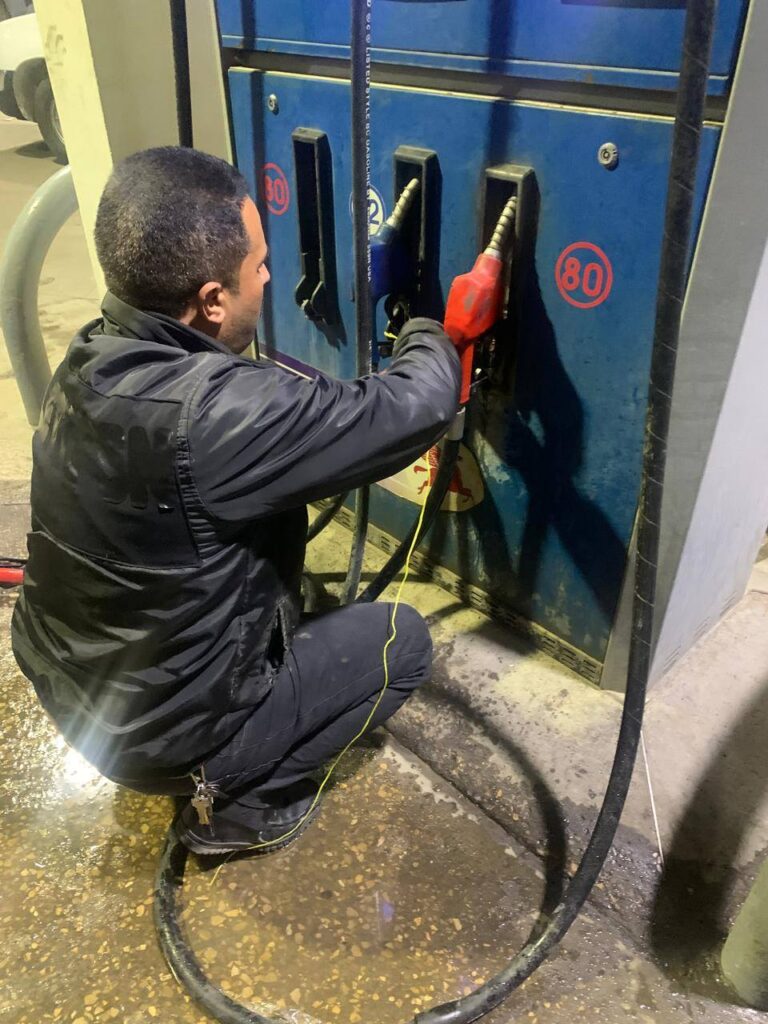The Egyptian General Petroleum Corporation (EGPC) carried out oversight efforts and campaigns across the country through its Central Committee for Monitoring Product Circulation and its geographically dispersed sub-committees to track the movement and circulation of petroleum products and seize any violations or illegal attempts to dispose of or smuggle subsidized products.
These efforts were conducted in integration with the Supply Police and agencies of the Ministry of Supply, as part of a comprehensive governmental effort to achieve the highest levels of oversight and discipline within the local market for petroleum product distribution.
The committee‘s work relied on integrating field supervision with modern tracking and monitoring technology. A GPS-based tracking system was used for petroleum product transport vehicles, an ATG (Automatic Tank Gauge) system for measuring fuel station tank balances, and the EGPC’s electronic system for tracking the circulation of petroleum products. This combination significantly enhanced the efficiency and speed of monitoring, and the accuracy of detection.
The committee has recently conducted unarranged field reviews of petroleum product shipping depots. These reviews involved matching the actual loaded products with what is recorded in the electronic system to prevent the leakage of subsidized products. They also included reviewing the documentation cycle for circulation and ensuring that necessary technical inspections of vehicles are carried out before allowing them to load. Furthermore, they monitored any violations related to safety requirements in the depots, in implementation of the fifth pillar of the Ministry’s strategy concerning safety.
The reviews further included inspections of butane cylinder filling plants and warehouses selling cylinders to the public. These checks ensured the accuracy of filling weights and compliance with safe operating conditions.
Coordinating with the Supply Police and Ministry of Supply agencies, the committee conducted inspection campaigns at fuel stations. These campaigns included checking for water content in station tanks, ensuring there was no tampering with fuel pump calibration, matching quantities shipped with sales, and monitoring any violations. They also assessed the quality of services provided to the public, addressed any complaints, and verified compliance with safe operating conditions.
Comprehensive review operations were carried out for approximately 4,000 fuel stations across various governorates in Egypt. This followed the recent issues regarding gasoline quality. Samples were taken from these stations for analysis, and were examined verify the presence or absence of water in fuel tanks. Detailed reports are being regularly prepared to be submitted to the relevant authorities.
The EGPC stressed the committee’s continued work through precise 24/7 digital monitoring, supported by surprise field campaigns. This aims to ensure tight control over the transfer and distribution of petroleum products, prevent any leakage, and protect consumer rights to receive products that meet specifications and quality standards.




